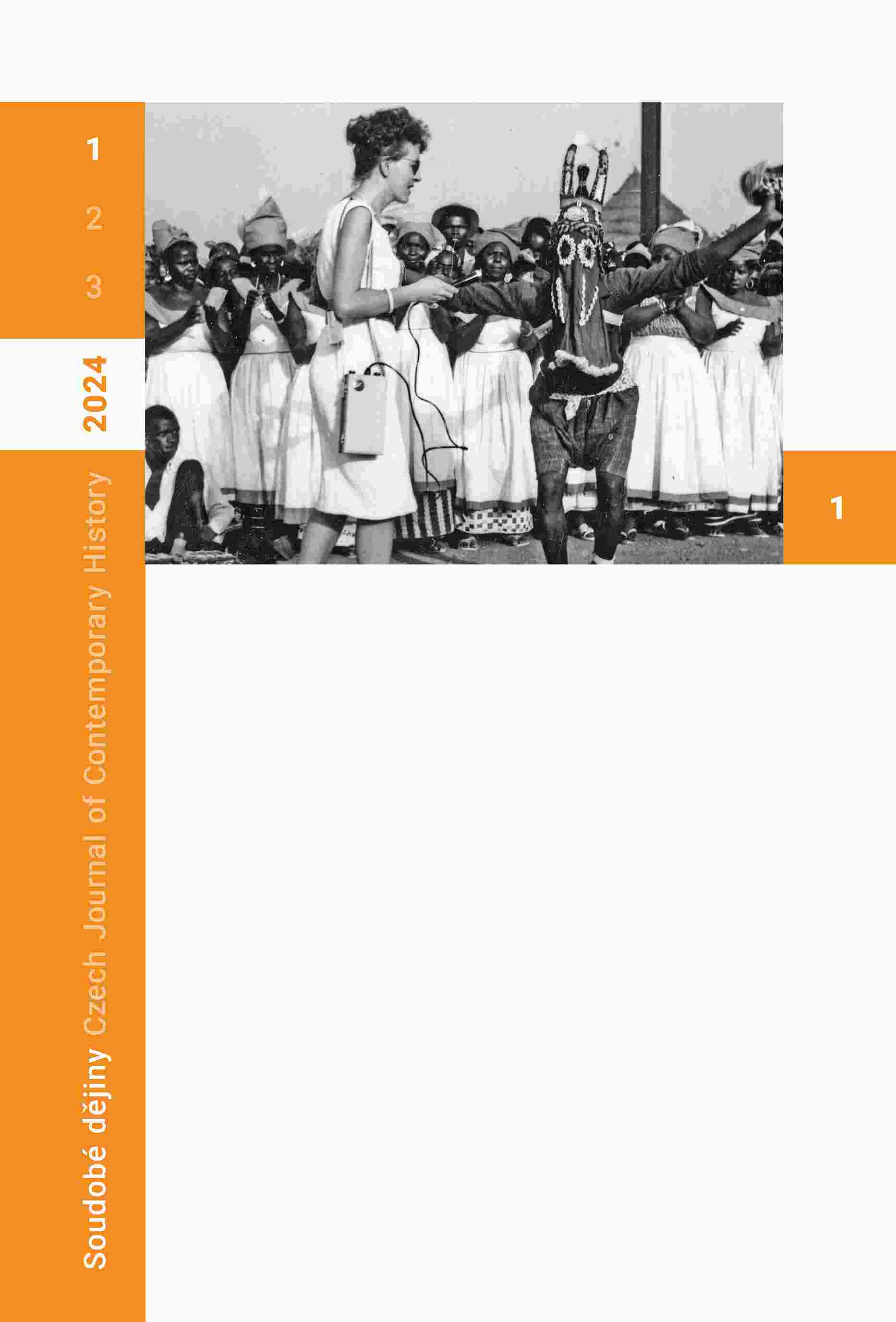Nová Albánie, nebo kus socialistického Orientu? Propaganda a takzvaní přátelé Albánie v kontextu československo-albánských vztahů na přelomu 50. a 60. let
A New Albania, or Just a Piece of the Socialist Orient? Propaganda and the So-called Friends of Albania in the Context of Czechoslovak-Albanian Relations at the Turn of the 1950s and 1960s
Author(s): Matěj KřepinskýSubject(s): History, Cultural history, Diplomatic history, Political history, Post-War period (1950 - 1989), History of Communism
Published by: AV ČR - Akademie věd České republiky - Ústav pro soudobé dějiny
Keywords: Czechoslovakia;Albania;Czechoslovak-Albanian relations;communism;Albanian diplomacy;Albanian Labour Party;"friends of Albania";Božena Neumannová
Summary/Abstract: Using materials in Czech and Albanian archives, the study maps the relations between Czechoslovakia and Albania in the dynamic period of the second half of the 1950s and early 1960s. Although initially they had quite an intensive development in the economic, political, and cultural spheres, later, from 1960 onwards, they experienced a deep and long-term political decline as a result of the split between Moscow and Beijing. The author focuses in particular on Tirana’s propaganda towards Czechoslovakia, its actors, and changing content and reception in Czechoslovak society and he asks whether elements of colonial discourse can be traced in the perception of Albania in post-Stalinist Czechoslovakia. He places his topic in the context of the developing mutual relations after 1948, when both countries became part of the Soviet bloc. The ideological affinity created space for a somewhat unbalanced economic cooperation, in which Albania played the role of a supplier of raw materials and importer of finished products (mainly industrial equipment), and benefited from the assistance of dispatched experts. The propaganda of Enver Hoxha’s (1908–1985) regime was motivated by the desire to portray an ideal image of the “new Albania” as a country that had broken away from its traditional backwardness and was building socialism on the south-western outpost of the socialist camp. At the same time, the constant emphasis on Albania’s equal place in the socialist community revealed the internal insecurity of the regime, especially given the country’s low level of development, overall peripheral position and tense relations with neighbouring Tito’s Yugoslavia. The protagonists of this effort were mainly Albanian diplomats in Prague, who used primarily ideological methods of action and were very sensitive to any questioning of their propagandistic language. They relied on the support of Albanian students in Czechoslovakia and especially the so-called friends of Albania, as they called the small circle of local sympathizers. Their central figure was the journalist, editor and writer Božena Neumannová (1882–1967), the second wife of the communist poet Stanislav Kostka Neumann (1875–1947), who had served as an orderly on the Albanian front during the First World War. Neumannová became a staunch supporter of Enver Hoxha and visited Albania with official honours in the spring of 1961 at his invitation, much to the displeasure of the Czechoslovak leadership. The author also presents the episodic chapter of Czechoslovak tourism in Albania between 1956 and 1960 and its influence on the formation of the public image of the “new Albania”. The direct experiences of Czechoslovak tourists and specialists in Albania tended to confirm the stereotypical ideas of the prevailing poverty, exoticism and “oriental” character of the country, which were alluded to in the schematic Albanian propaganda. Although such perceptions were not associated with negative evaluations of their bearers, Albanian diplomats unsuccessfully complained to their Czechoslovak partners about their publication. Later, after Albania had started following China’s lead in the early 1960s and broke ideologically with the Soviet bloc, its propaganda efforts in Czechoslovakia and the related content changed significantly. It attempted to convince the local public of the firm and correct political-ideological line of the Albanian communists, who rejected Khrushchev’s criticism of the Stalinist cult of personality and the ensuing course of the Kremlin. According to the author, until the 1980s, the Albanian party had illusions about the discreet sympathies of Czechoslovak society and the continued support of the “friends of Albania”, whose close contacts with the Albanian embassy in Prague at the time of the split, however, also enabled the State Security (Státní bezpečnost) to monitor the Embassy’s activities, as, for example, in the case of “Operation Astra”.
Journal: Soudobé Dějiny
- Issue Year: XXXI/2024
- Issue No: 1
- Page Range: 89-137
- Page Count: 49
- Language: Czech

